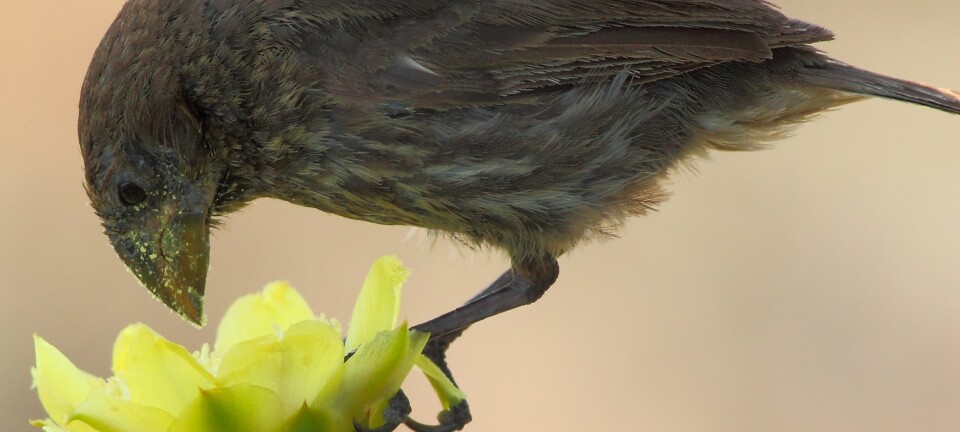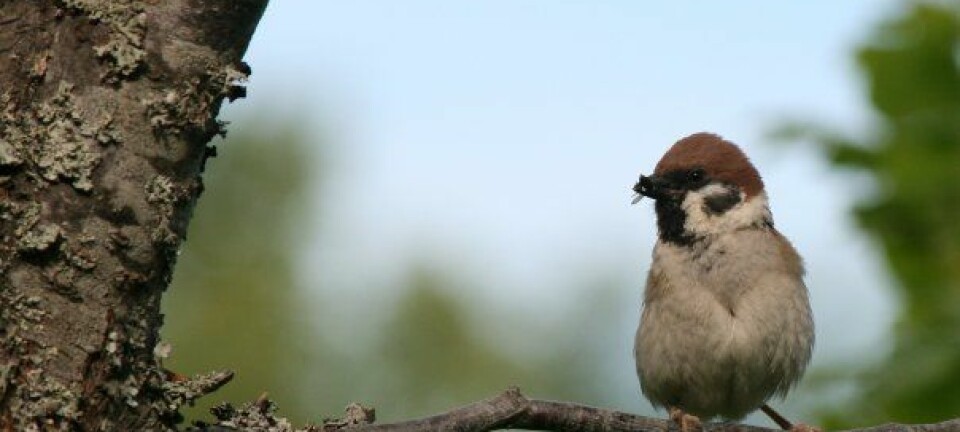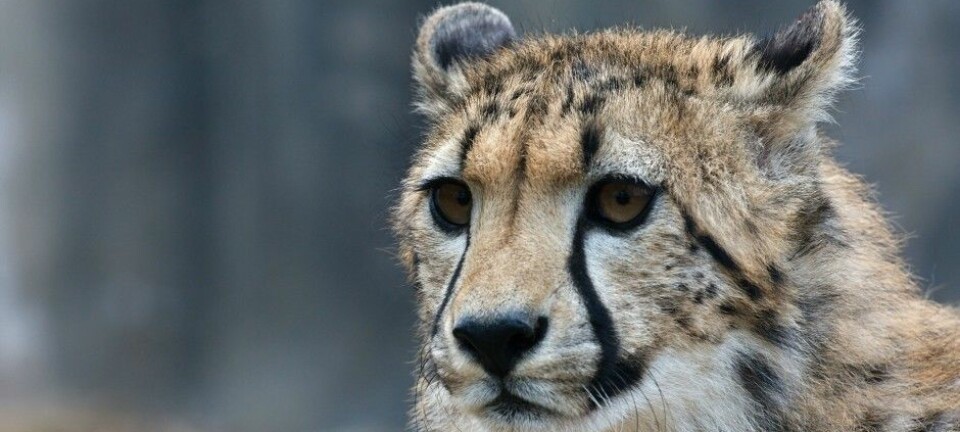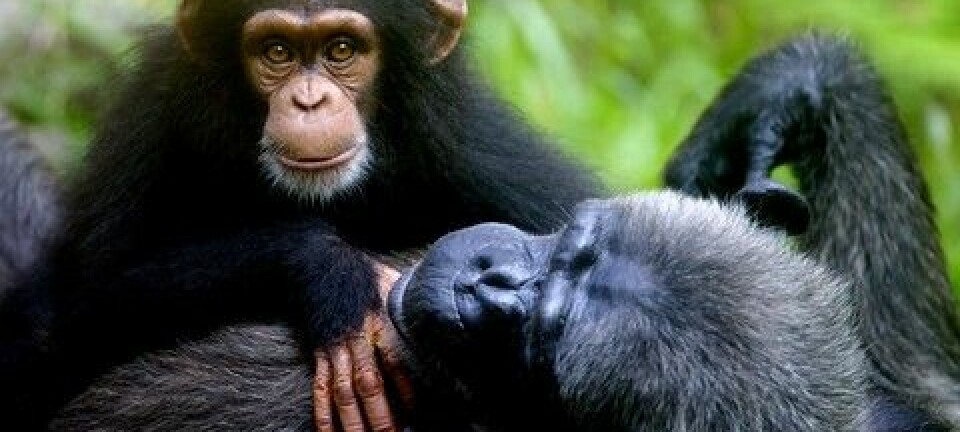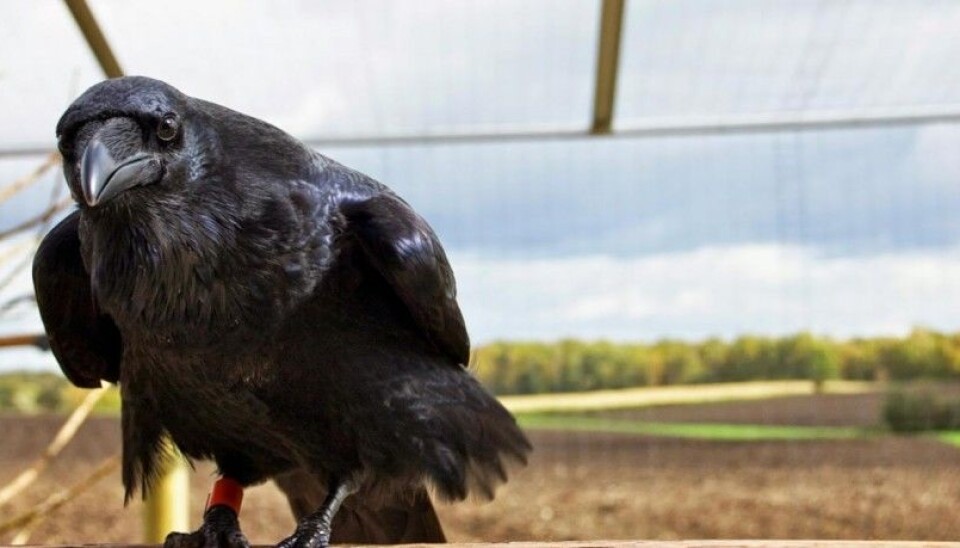
Ravens can be as clever as chimps
A Swedish study shows that corvids – birds of or resembling the crow family – can be just as smart at certain tasks as chimpanzees, even though their brains are very much smaller.
Scientists think the great apes are the smartest animals on the planet, second only to humans. Elephants and whales have also been considered smart, largely because they have such huge brains.
But brain size is not directly correlated to animal intelligence, as shown in a recent study. Ravens solve a certain task as well as apes, even though they have smaller brains.
This can be interpreted from a study by researchers at Lund University in Sweden, in cooperation with British and German scientists.
The study has been published in the journal of Royal Society Open Science.
Good impulse control
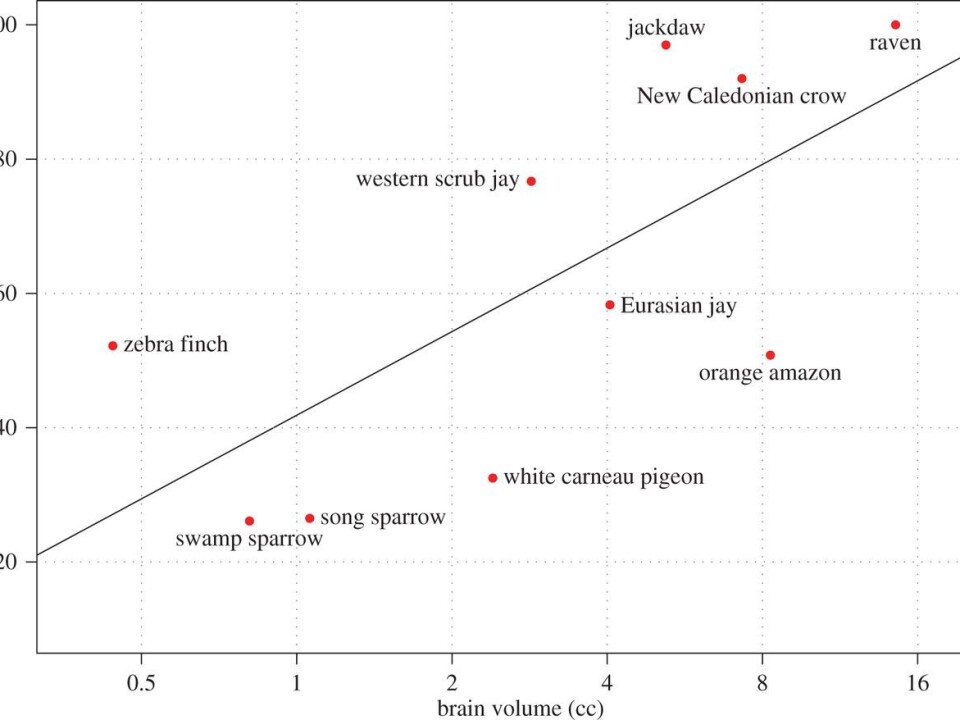
It’s hard to test animal intelligence. But good impulse control is one sign that animals are smart. This means the animals are capable of overriding motor impulses, facilitating more rational behaviour.
Various types of automatic feeders have long been used to measure animal intelligence. For instance what can apes, rats, birds or octopi do to get food out of an apparatus or a container?
In a Duke University study from 2014 involving 36 animal species, the great apes and other primates clearly scored the highest. But corvids were not tested. Corvids include ravens, crows, jackdaws, magpies and jays. These have larger brains than most other birds.
Basically, how do researchers test the “IQs” of animals?
Food from a cylinder

The scientists placed tasty titbits in the middle of a transparent tube that was open on both ends. The challenge for the animals was to get this food by going for the openings rather than directly through the impenetrable surface where the food could be clearly seen.
To do so the animals had to control themselves – electing for more effective strategies to satisfy their appetites. They received minus points for trying to get the food through the impenetrable transparent surface.
Great apes were the best at this sort of inhibitory control, indicating that brain size is the key to intelligence.
Ravens smartest
But doctoral research fellow Can Kabadayi arranged for ravens, crows and jackdaws (one of the smallest corvid species) to perform the cylinder task. He wanted to test their inhibitory control.
He allied himself with researchers at Oxford University in the UK and the Max Planck Institute for Ornithology near Munich, Germany.
First the researchers trained the birds to tackle opaque cylinders with open ends. Then they repeated the experiment with transparent cylinders. Out of immediate, primitive impulse, a bird would then peck at the spot where it sees the food. But all the ravens ignored that and went straight to the openings on the ends of the tube at each attempt.
View the video here:
Crows as clever as gorillas
The crows and the jackdaws were almost equally adept at this, using their beaks directly on the openings in 97 percent of the attempts. This put them on the level of gorillas and bonobos – the latter were formally called pygmy chimpanzees.
The researchers assert that this shows corvids to have quite effective brains, despite their relatively small brains.
Sparrows did much worse. They figured out what to do in only 20 percent of their attempts. They generally pecked directly at the tube as soon as they spotted the food. In the graph on the right you can see how various birds scored at this task.
The researchers think that intelligence can also be linked to the density of neurons and the brain structure.
One of many factors
Zoologist and University Lecturer Petter Bøckman of the University of Oslo likes the study but he thinks it only reveals one form of intelligence.
“What these researchers have measured is the birds’ ability to refrain from doing the obvious. So this study confirms something we have known a long time, that corvids are among the most intelligent birds, as are parrots,” says Bøckman.
But he stresses that it would probably be an exaggeration to say they are as smart as chimpanzees. This ability is just one of many criteria for quantifying intelligence.
“We don’t know whether these birds can tackle other tasks that primates can do. For instance chimpanzees can look at patterns on computer screens and quickly press correct combinations of keys.”
We already know that animals that live in flocks and eat a variety of foods are more intelligent than ones who live singly and eat just one thing. Corvids belong to the first category.
Magpies are the smartest birds
Bøckman thinks that birds exhibit a different kind of intelligence than mammals and the smartest of our feathered friends are magpies.
“The magpie scores as high as chimpanzees when you test their self-recognition, which is another form of measuring intelligence. When a researcher draws a mark on their forehead they try to get it off. In this test magpies score on a level with chimpanzees and dolphins,” he says.
He explains that owls, which are a symbol of wisdom in our culture, are pretty dumb by comparison. The same goes for eagles, probably because they are so well-adapted to their environment that they don’t need to be very shrewd to find sufficient food.
Brain weights
Nor is it news that the absolute size of a brain is not the key factor in gauging intelligence, points out Bøckman.
“The elephant is clever, but assessed from brain weight alone the elephant and baleen whales should be much more intelligent that they really are,” he says.
The brain’s mass compared to body mass is a much better measurement to go by. On this account, dolphins and humans rank higher than elephants and baleen whales.
But Bøckman says that still doesn’t explain everything. Proportionally, mice have brains comparable in size to ours – but they still get caught in mousetraps.
Evolution has taken different paths
“Corvids do amazingly well. This can be because evolution has evolved smart animals in parallel paths, in disparate ways,” says Can Kabadayi. His tests are part of his doctoral dissertation in cognitive psychology at Lund University.
He thinks the study confirms that factors besides the absolute size of the brain are vital for intelligence, for instance the density of neurons.
He thinks there is still much to discover about the relationship between brain size and intelligence. This includes learning more about the structure of bird brains.
“But this study clearly shows that some bird brains are not simply birdbrains after all!” he says.
--------------------------------------------
Read the Norwegian version of this article at forskning.no
Translated by: Glenn Ostling
